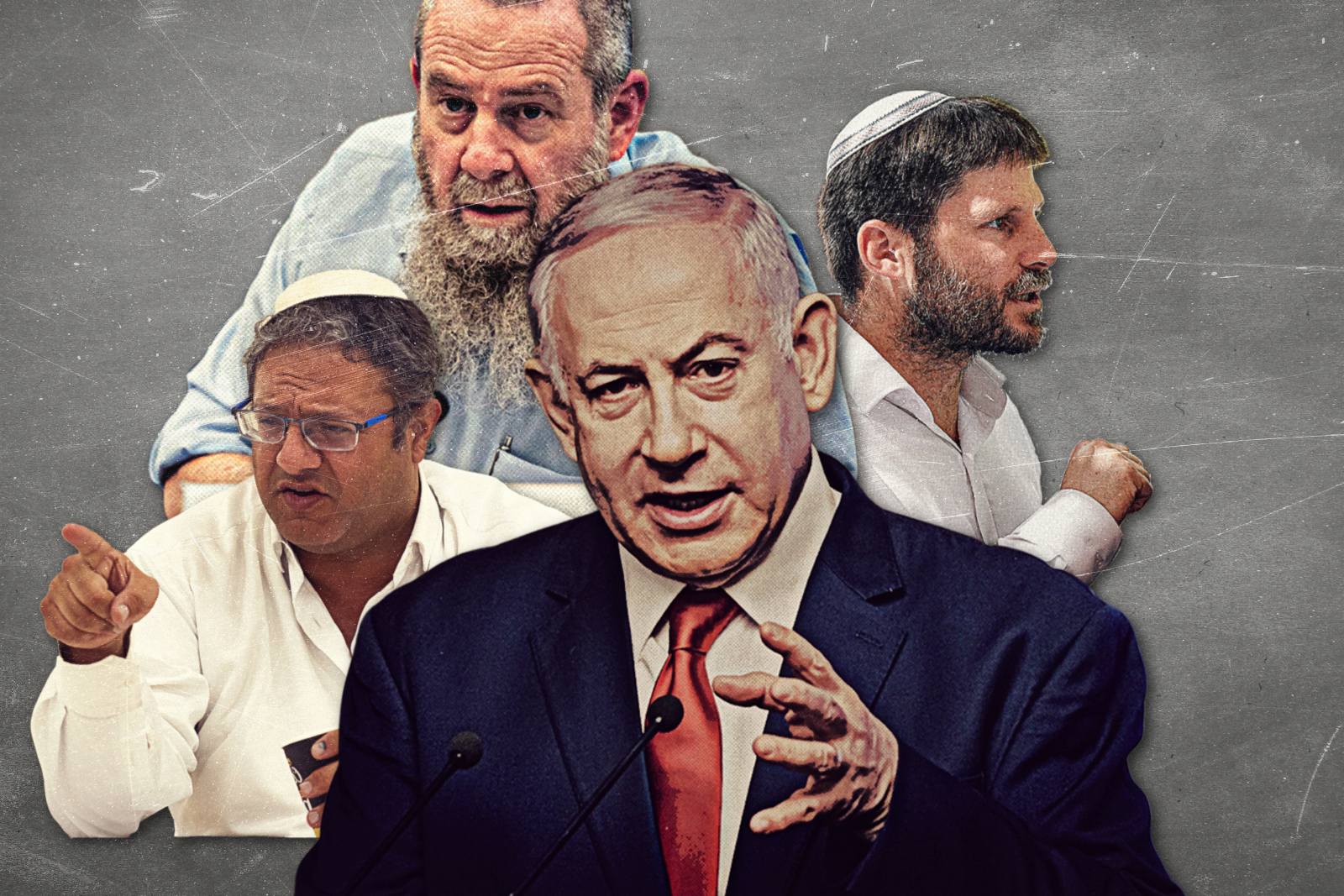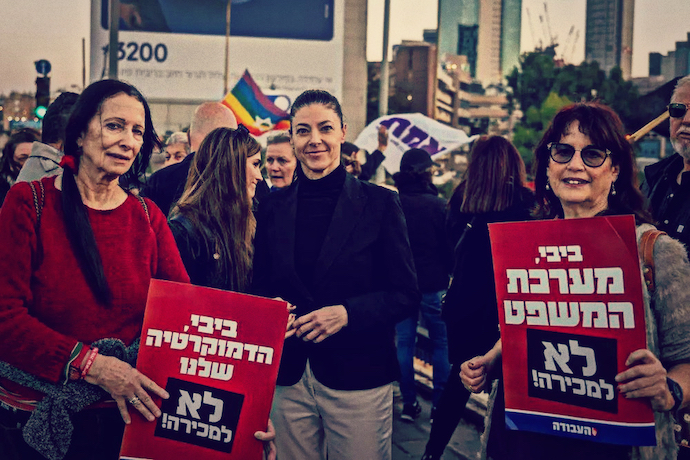
The Israeli Left has Only Itself to Blame
Israel’s past elections have witnessed the death of the contemporary Israeli left. The overt selfishness of Labor leader Merav Michaeli attempting to uphold the departed honor of the party of David Ben-Gurion, Golda Meir, and Yitzhak Rabin, refused calls to unify with the left-wing Meretz party. Just as guilty were Hadash-Ta’al and Balad, whose split prevented Balad from making the electoral threshold, thus contributing to the lowest Arab Knesset representation in two decades.
The result was a nightmare scenario: an overwhelmingly Knesset majority for Benjamin Netanyahu as prime minister via the most right-wing coalition in Israel’s history. The hindsight verdict is clear, Labor and Meretz should have clearly united; however, such unity alone would not suffice to combat the current coalition. The future of Israel’s left must undoubtedly be under one party, uniting both Labor and Meretz; however, this party must do its utmost to unite with Arab lists to create the most hospitable environment to confront the current Kahanist coalition.
Various pre-election critics against a Labor-Meretz merger argued that a distinction between the parties, despite having similar voting records, was needed. Meretz, a party presenting a slate of members who have denounced the occupation and mistreatment of Palestinians in the territories, should not unite with Labor, a party pitching a slate blind to the daily tribulations of occupation (as evidenced by the slate’s rarity in West Bank visits). This argument is no doubt a legitimate criticism of Labor. The minimalist addressment of the Palestinian cause, and even to Arab-Israeli causes, by Labor reinforces the decades-old notion that such a party is defined by out-of-touch elites, primarily Ashkenazim, who live a life devoid of the struggles generated by occupation and mixed-city tensions.
Where one should diverge from such critics, and thus come to the conclusion of supporting Israeli leftist unity, is that a cabinet defined by Itamar Ben-Gvir, the Minister of National Security, Bezalel Smotrich, the Finance Minister, and Avi Maoz, the deputy minister leading the new ‘Jewish national identity’ office, will make the issues of West Bank occupation and Arab-Israeli discrimination paramount, thus forcing Labor to take more proactive approaches on such issues.

The ascension of Ben-Gvir, a man whose trademark is provocations in East Jerusalem and mixed-cities, means a Kahanist now holds power over the police and the Israel Border Police, the Magav. While Smotrich will not get the position of Defense Minister, he will become an independent minister in the Defense Ministry, giving him influence over settlement policies. Maoz will likewise head the ‘Jewish national identity’ office meaning Israel’s arguably most homophobic politician, through his control over school curricula, can influence sex education and hamper the work of NGOs promoting Jewish-Arab unity operating in Israeli schools. Based on this cabinet, anyone can see the writing on the wall that all Arabs, both territorial Palestinians and Palestinian-Israelis, will be the primary targets for gruesome attacks and discrimination.
In reclaiming his role as prime minister, Benjamin Netanyahu will act as the final nail in Palestine’s coffin by creating a likely scenario of de facto annexation in the West Bank. In comparison to previous stances in support of de jure annexation, the Biden administration will likely dissuade Netanyahu from complete outright annexation; however, with the likely legalization of previously illegal settlement outposts, specifically in the vicinity of East Jerusalem, de facto annexation is a probable scenario.
The convergence of such actors in an Israeli coalition, a coalition defined by anti-Arab actors, will be a wake-up call for Labor. As the brutality of occupation increases and as inflammatory right-wing provocations become daily norms, it is not implausible for Ben-Gvir to call for a mass ‘transfer’ of Arabs under the pretext of anti-terrorist measures. Anti-Arab activity, both in the territories and in Israel-proper, will become the cornerstone issue defining this upcoming coalition. It is hard to believe that Labor will not address the challenge of anti-Arab racism head-on by aligning with the actions of already outspoken Meretz leaders. This means Labor leaders going to the West Bank to denounce worsening conditions and going to mixed cities to highlight overt anti-Arab activities. The only logical conclusion in the face of this new coalition is a unified front with one party to the left of Yesh Atid.
Furthermore, Netanyahu’s coalition should be a wake-up call for every Arab party. The chief challenges for Arab parties will be virtually indistinguishable from that of a future Meretz-Labor party. The previous defining issue amongst Arab parties was whether to join a coalition. Ra’am, after leaving the Joint List, set the agenda by becoming the first Arab party to join a coalition. Hadash-Ta’al can likewise be described as ambivalent on whether to work with coalition while Balad is staunchly opposed to such measures. Ra’am, while far from getting all its desires, showed there are benefits to operating in a coalition. Mansour Abbas’ proactive approach in the Bennet-Lapid coalition was crucial in facilitating budget expenditures to Arab communities. Ra’am serves as a model proving that, despite lacking a Zionist character, progress can be achieved for Arab rights and livelihood by working amongst Zionist actors. For the sake of territorial Palestinian and Arab-Israeli rights, the shared necessity to fight policies against Arabs should create natural allies between a Metetz-Labor alliance and every Arab party.
While the short-term future of Israel appears grim, a grassroots campaign is already emerging to bring together Jews and Arabs to oppose the Kahanist coalition. Some of the largest joint Jewish-Arab protests in history are taking place against the new government, orchestrated by peace organizations like the Standing Together Movement, thus showcasing previously unparalleled solidarity between Jews and Arabs. This seemingly dark period in Israeli history is fueling a bottom-up political desire amongst both Jews and Arabs to unify, thus it is the duty of top-down political actors to match their fervor. When fascist elements in Israeli society undertake an assault against democratic principles and minority rights, a unified resistance represents the only logical path forward.

